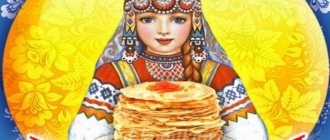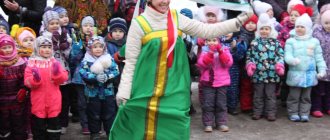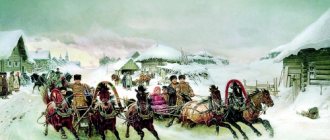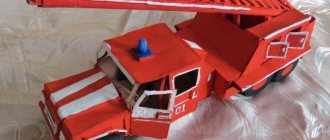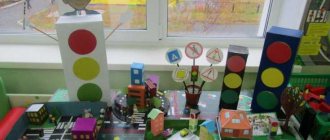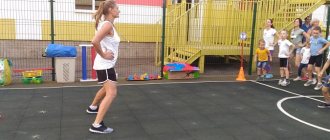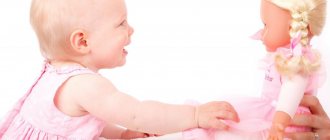Winter is already coming to an end, and spring is on the doorstep. And this is a wonderful event! At this time, our ancestors celebrated the real spring holiday of Maslenitsa. The tradition has remained to this day. Maslenitsa will begin next week.
This is a fun and large-scale holiday that is celebrated for a whole week. All the festivities this week are dedicated to the upcoming beautiful spring. What can you say about Maslenitsa for children? Let's talk about this holiday today.
A distinctive feature of the holiday is that the date of celebration changes every year. Maslenitsa week begins exactly 7 weeks before Easter, before the main fast of the year. Basically, Maslenitsa comes in February.
history of the holiday
Maslenitsa is the most ancient holiday brought into our culture by pagans. Our ancestors celebrated it since ancient times. Observant ancestors noted that at the end of winter, the days become longer, the sun shines brighter, and spring is about to come into its own, which means that nature will wake up again from a long winter hibernation. How could you not be happy? And so that winter would go away quickly and spring would become its full-fledged mistress, in honor of this they organized a whole festive week - Maslenitsa. At this time, winter was celebrated and sent to rest, and spring was invited and invited.
There is an interesting version of why the holiday has such a name: the name comes from the word “butter”, because at this time the body was already actively preparing for Lent, it was no longer possible to eat meat, but the consumption of butter and other dairy products was not forbidden.
The main traditions of Maslenitsa
Maslenitsa has always been celebrated very widely and cheerfully. The first three days were called “narrow” Maslenitsa, and from Thursday Maslenitsa was already called “wide”, all work stopped and festivities began. Each day of the week had a special name and had its own characteristics.
Monday “Meeting” - the beginning of the holiday, the beginning of cooking pancakes. Moreover, the first pancake was usually given to the church for commemoration of the dead, or to animals.
Tuesday “Flirting” - young people actively got to know each other and communicated with each other, rode down icy and snowy mountains, played games, invited each other over for pancakes.
Wednesday “Gourmand” - on Wednesday you had to eat enough pancakes to last for the whole year.
Thursday - “Revelry” - from this day the revelry grew, booths were already opening, people were riding sleighs, participating in games and fist fights.
Friday - "Mother-in-law's evening." The name speaks for itself. On this day we went to visit our mother-in-law to enjoy pancakes for warm family gatherings.
There was an interesting tradition on this evening of Maslenitsa. The son-in-law passed by his mother-in-law's house and looked at the windows. As soon as he sees a rag doll sitting on the window - a symbol of Maslenitsa, then he boldly comes to visit and treats himself to pancakes. This was how the woman showed that everything was ready and she was waiting for guests.
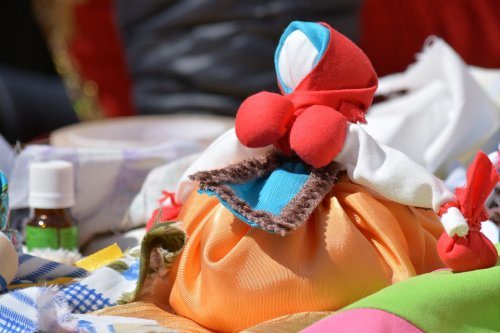
Saturday – “Sister-in-Law’s Gatherings.” The mother-in-law came to visit the newlyweds for pancakes.
Sunday - Forgiveness Sunday. The most fun and eventful day of Maslenitsa week. Firstly, they asked each other for forgiveness for all offenses, and they themselves forgave. Secondly, we walked on the city streets until we dropped. And the most interesting thing is that at the end of the day, an effigy of Maslenitsa was burned in the fire. It was believed that this was how they cajoled winter, as if persuading it to give way to a warm spring.
Entertainment during Maslenitsa holidays
Traditional entertainment will keep children interested and willing to participate in fun activities.
Important: when organizing Maslenitsa games for children, the main thing is to choose the right game actions according to the age and capabilities of the child.
Fathers and mothers will bring great pleasure to the children, who will also take an active part in fun and competitions. This achieves a great educational effect, unity between parents and children, which can be difficult to achieve. Therefore, adults should take the opportunity to communicate, play, compete with their children, and reward them for their achievements. In folk pedagogy there are exciting games and competitions that can be organized at home if, for some reason, parents do not go with their child to mass entertainment. Preschool children attending kindergarten know and love traditional fun; parents teach children at home during family leisure time. On holidays like Maslenitsa, it is simply necessary to use the creative potential of the people (ditties, nursery rhymes, songs) to expand knowledge about traditions, enrich vocabulary, and develop children's memory.
Maslenitsa, Maslenitsa, we can’t praise you enough, Come visit us in the wide yard, play with the children, ride on the slides!
"Pancakes in a frying pan"
Children of all ages enjoy the entertainment. Adults take an active part in it; preparation is minimal: draw a round playing field (frying pan). The participants hold hands tightly and try to push each other into the circle so that the pancake player is “baked” in the frying pan. The winner is the participant who is never in the circle. At the end of the game, everyone is treated to pancakes.
"Merry buffoons"
In this theatrical action, parents prepare hats and learn a song, for example, based on a poem by L. Orlova:
I am a cheerful Buffoon! Look, I'm not bad. For a penny (preferably five) I will jump and dance. I won't let you get bored! Who's ready to be naughty?
The players wear buffoon hats; you can simply sew bright balls (bells) to the child’s hat. To the chorus, children imitate the lolling habits of a bear at a fair, the important gait of a cockerel, and the fight of goats with their foreheads. It's good to use fun background music.
"Hurdy organ"
A theatrical game with the participation of children of different ages. To carry out the fun, an adult needs to dress up as an old organ grinder, pick up a monkey or parrot toy, a music box like an organ grinder, and write notes for children pretending to be “customers.” The entertainment will be more interesting if you prepare souvenirs for the participants, which need to be hidden in different places. The presenter sings a song about a barrel organ or reads a nursery rhyme:
I never part with my old barrel organ anywhere, it gives everyone joy and drives away sadness!
An adult, pretending to be an organ grinder, shouts: “Happiness is for sale!”
Children-"buyers" pull out notes, the organ grinder reads out their contents, for example: "Look for your happiness under the Christmas tree", "Your happiness is behind the bench."
"Let's ride the carousel"
A classic outdoor game for preschoolers of any age, well known to children in kindergarten. The leader (an adult or a senior preschooler) raises a stick with multi-colored ribbons tied to it. Participants choose a ribbon, the presenter spins in place, depicting a carousel. The players perform rhythmic actions, singing along with the leader:
Barely - barely, barely - barely The carousels were spinning. And then, then, then Everybody run, run, run! Hush, hush, don't rush, stop the carousel. One-two, one-two, the game is over.
"Blow up, bubble"
Classic old-time entertainment, familiar and loved by all preschoolers. The round dance game is often played in kindergarten. For the game action, you need to stand in a circle and perform certain movements in accordance with the words:
Inflate, bubble, Big, big, (participants gradually expand the round dance, the “bubble” inflates) Stay like that and don’t burst! He flew, flew, flew (players hold hands, run in a circle) And he touched a thread. The thread fell, (everyone stops) The bubble is gone! Bang! Burst: shh-sh-sh (the circle narrows, the bubble “bursts”)!
"Old Malanya"
Fun for all the kids, it makes those playing very happy. It’s good if adults take part, whom children can imitate. At first, the parent is chosen as the driver (“Malanya”), then the role can be transferred to an older preschooler. The players stand in a circle, the driver is in the center. To the words of the nursery rhyme (it can be sung in chorus), the driver performs various funny actions, the rest of the participants reproduce them:
At Malanya's, at the old woman's, they lived in a small hut, Seven daughters, seven sons, All without eyebrows (the eyebrows are covered with their hands). With such eyes (“Malanya” shows funny little eyes, the players copy), With such ears, with such noses, (the driver makes mischievous faces), With such a mustache, with such a head, with such a beard. They didn’t eat anything, they sat all day, they looked at her, they did something like this... (depicts a cheerful pose that all players copy).
The participant who shows “Malanya” the most fun wins and receives a prize.
"Dudar-dudarishche"
This ancient entertainment will fit perfectly into family leisure time and will create a cheerful mood for adults and children. Maslenitsa is the right time for such ancient fun. First you need to tell the children who the dudar is (plays the pipe) and what a deck is (a thick cut down tree). An adult first becomes the leader, and then the role is transferred to the children. Entertainment requires a large area, so they play on the playground. Participants dance in a circle and rhythmically say or sing:
Dudar, dudar, dudarishche, old, old old man. It's under the deck, under the damp, under the rotten one. Dudar, dudar, what hurts?
Dudar says plaintively, pointing to any part of the body, for example: “My finger is sore.” The players laugh and grab the neighbor’s finger and move on.
Or: “Little hand hurts,” they hold hands, continuing the round dance with the words: “Dudar, dudar, what hurts?”
Dudar cries: “The barrel is sick,” the participants laugh and grab each other’s sides, the game continues.
The fun ends with the words of the dudar: “Nothing hurts!”
Everyone runs away, the leader catches them.
How to spend Maslenitsa with children
Children simply adore Maslenitsa, because something incredible happens for seven whole days. This includes walking, baking pancakes, visiting people, and many other entertainments. If you want to celebrate Maslenitsa with your children in a fun and big way, here are some great tips.
Go to a museum or exhibition, usually at this time there are interactive excursions and thematic exhibitions there, this will help you tell more about the holiday or further deepen your existing knowledge.
There's nothing better than cooking together, especially when it's delicious, everyone's favorite pancakes. You can use a traditional recipe or an old one depending on your preference. And there are countless fillings for them. Jam, sour cream, fish and caviar are considered traditional.
My own pancake recipe, “packed in a fairy tale,” can be read and used with children in the fairy tale “Masleniny pancakes.”
Invite guests, learn poems and songs about Maslenitsa, organize a children's holiday with active fun, songs and dances.
Don’t forget about creativity - together with your child, make a scarecrow of Maslenitsa from available straw, ropes, sticks, paper, fabric, etc. Among the crafts for Maslenitsa you can make suns, pancakes, and rag dolls. Some of our Maslenitsa creative crafts can be seen in this article.
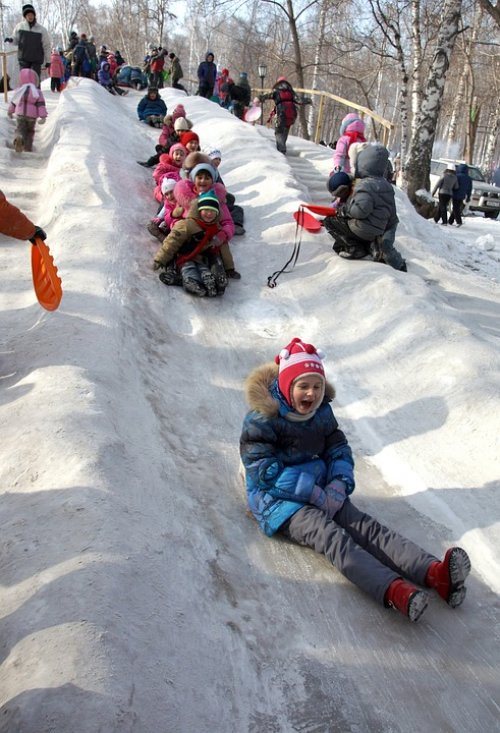
Be sure to go to folk festivities on the very last day of Maslenitsa, ride a horse sled, take part in games and fun, show your child how the effigy of Maslenitsa is burned at the very end of the holiday.
Another article about how to spend Maslenitsa with children.
Interesting facts about Maslenitsa
- There is a similar holiday not only in Rus'. In Europe, it is celebrated on approximately the same dates, but it is called carnival, which literally means “goodbye, meat,” and it is also timed to coincide with the beginning of Lent.
- Maslenitsa is the only holiday that the Russian Orthodox Church adopted from paganism. Maybe they just haven’t come up with an alternative, or maybe just an exception to the rule. The main thing is that we still celebrate this original and fun holiday.
- As you know, pancakes are baked all over the world for Maslenitsa. Of course, every year the best chefs want to surprise with something. For example, in 1994, the largest pancake in history was baked in England - its diameter was 15 meters and its height was as much as 1.5 cm. The total weight was 3 tons. Damn it!
- Until the beginning of the 17th century, Maslenitsa was celebrated not for 7, but for 14 days! The people knew how to have fun even in troubled, difficult times.
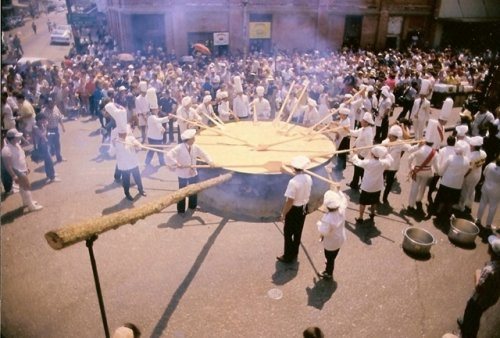
Maslenitsa is a fun holiday that is celebrated on a special scale. How can we do without interesting active games? Below you will find traditional games for children for the most active and eventful holiday celebrations.
"Sunny Round Dance" for the little ones
The baby stands in a circle and joins hands, and the leader stands in the center and personifies the sun. The guys walk in a circle, holding hands, and sing:
Shine, sun, brighter - Summer will be hotter, And winter will be warmer (the circle is shrinking), And spring will be sweeter (the circle is expanding).
Suddenly the presenter loudly says “I’m burning!”, and the children scatter in different directions. The leader's task is to catch someone! Whoever he catches becomes the next sun. The game starts over.
"Burners"
The guys find a mate and stand in a column as if by a stream. At the head of the column is the leader. Everyone sings a song in chorus:
Burn, burn clearly, so as not to go out! Look at the sky, The birds are flying, The bells are ringing: Ding-dong, ding-dong, Run out quickly!
As soon as the song ends, the first couple must run very quickly to the end of the column before the leader catches them. At this time, the others encourage the participants with the words:
“One-two, don’t be a crow, but run like fire!”
If the leader catches someone, he stands in a column with the caught one, and the one left without a pair takes the place of the leader. The game starts again.
"Taking the Snow City"
This is another traditional Maslenitsa game. Participants are given exactly 30 minutes to build a snow fort. After this the assault begins. It is usually difficult to determine the winner, but, as they say, the main thing is not victory, but fun and active participation.
"King of the Hill"
A simple and interesting game. Participants stand at the foot of the mountain and, on command, begin to climb up. The winner - the king of the mountain - is considered to be the one who climbed to the very top the fastest.

What should you tell children about Maslenitsa?
In order for children to be interested and understand the idea of the holiday in which the family is going to participate, it is necessary to tell in an accessible form about its content. You can read books to preschoolers, look at pictures on the Internet. And yet, an emotional, accessible story from an adult will help the child better feel the upcoming event. In this case, what can parents tell their children about Maslenitsa?
Maslenitsa is a holiday symbolizing farewell to a boring winter and a welcome to the long-awaited spring. The tradition of Maslenitsa days has always been wild fun and manifestation of generosity, as our ancestors considered this to be the key to rich harvests and abundance in the coming year. The holiday lasted for seven days, each day was named and celebrated in a special way. The main treat all week is pancakes, symbolizing the spring sun. A cheerful decoration for the event was the construction of a straw doll or stuffed animal, named after the Maslenitsa holiday. The scarecrow was placed on the main square where the festivities took place (you can give a preschooler a small straw doll). Calling on the sun, they tried to please Maslenitsa, shouting out calls:
Maslenitsa, Maslenitsa, Come visit us in the wide courtyard. Ride in the mountains, roll around in pancakes, amuse your hearts!
Traditional for the holiday was participation in folk entertainment, competitions, and round dances. People sang, joked, and made fun of Maslenitsa. On the last Maslenitsa day, a straw doll was burned, rejoicing in the upcoming spring days. Simple but exciting entertainment: sledding, taking snow forts - attracted both children and adults.
Proverbs and sayings about Maslenitsa
The people came up with many wise proverbs and sayings about the festive Maslenitsa. Here are just some of them:
- “A pancake is not a wedge, it won’t split your stomach”
- “Maslenitsa is not all for the cat, there will be Lent too”
- “Not life, but Maslenitsa”
- “Maslenitsa – go crazy, save money”
- “At least pawn everything from yourself and celebrate Maslenitsa”
- “So that you are up to your elbows in trouble, and so that you get your fill of food”

Poems about Maslenitsa
A lot of poems have been written about Maslenitsa. Unfortunately, the authors of most of them are unknown. But on the other hand, in such a rhymed and rhythmic form, getting to know the holiday is even brighter and more fun. These poems are a kind of melodies and barkers)))
* * *
Hello, annual Maslenitsa, our dear guest! Come on black horses, On painted sleighs, So that the servants will be young, They will bring us expensive gifts, And pancakes, and kalachi Swords through our window!
* * *
And we were expecting Maslenitsa, We were greeting our dear guest, We were covering the mountain with pancakes, And we were pouring butter on top. The mountain is steep like pancakes, the mountain is clear like butter, And they pour snow on the mountain, And our mothers call us home. It’s not good for us to go home, We decided to take a ride down the mountain. Oh, you Maslenitsa-crooked neck, give us a good ride.
* * *
This is Maslenitsa - a fairy who walked around houses and courtyards. So let's quickly accept her gifts! And she gives you happiness. Many victories in life, getting rid of bad weather, and letting good luck follow! We are waiting for you at Maslenitsa! We'll meet you with butter pancakes, cheese, honey, kalach and cabbage pie. Great Lent awaits us all, Eat for future use, people! Walk all week, eat up all your supplies.
* * *
Wide Maslenitsa! We boast about you, we go on roller coaster rides, we overeat on pancakes. Hey, Maslenitsa Kuroseika, give us a good ride! - Oil can, Oil can, haven’t you seen Gorasenka? - And Goraska in a red hat on a little black horse, waves her whip, and the horse dances under him.
* * *
Winter is not living its last days alone: We all see it off, We wish you a year’s rest! And now we are waiting for spring - its traces are already visible! Let it warm you and me. Happy Maslenitsa! And Happy Spring!

DIY costume for Maslenitsa
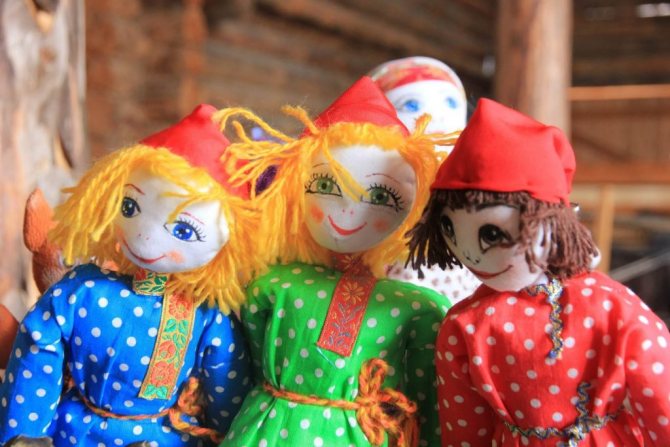
Spectacular and easy-to-make costumes for Maslenitsa - buffoon for boys and Spring for girls.
How to make a buffoon costume with your own hands:
- A colorful women's robe that fits in size is cut off from the bottom and hemmed - it turns out to be a future shirt for the buffoon.
- Slits are made on the sleeves of the shirt so that the sleeves hang down a little.
- The lower part of the costume is made from pants that are too big for the child, sewing in an elastic band at the waist.
Creating a headdress for a costume is also quite simple; watch the master class on making a hat for a buffoon with your own hands here:
How to make a Spring costume for a girl:
- Choose a flared dress in a suitable color - preferably green.
- Glue or sew paper or fabric flowers onto the dress.
- Place beads on the girl’s neck and a wreath on her head.
A beautiful wreath of artificial flowers can be made like this:
If you have no free time at all, but want to make a costume with your own hands, choose one of the simplest options:
- Spring look for a girl: over any spacious flared sundress, wear a tight, fitted sleeveless vest;
- bear costume for a boy: put a fur coat on your child turned inside out and complete the look with a bear mask;
- goat costume: attach beads and bells to the fur coat, make horns from cardboard.
You can create an image suitable for Maslenitsa even simpler: put on a boy any mask or false beard, and add themed accessories to the girl’s regular clothes, for example, a bright scarf, a sash, or beads made from bagels.
Riddles about Maslenitsa
And without fun riddles on a holiday, you can’t go anywhere. Give your children these riddles at the beginning of Maslenitsa week and set the rhythm for the whole holiday.
We say goodbye to winter, And we bake and eat pancakes, We greet spring together, What are we celebrating? (Maslenitsa)
Drive away the snowstorms from us, Take us on a carousel. Melt the cold ice, Let spring come soon! (Maslenitsa)
On this holiday, everyone strives, Not to sit at home for a long time, But everyone rushes to the fair, To watch performances, Buffoons perform, They bake delicious pancakes, Once a year there is a holiday, At the end of winter. (Maslenitsa)
This is a very tasty holiday, Gives us pancakes with caviar, And also delicious jam, What kind of holiday is this? (Maslenitsa)
Everyone around is baking pancakes, They give us plenty to eat, We burn the effigy of winter, And we invite spring to come to us. (Maslenitsa)
Fairs, smiles, songs, All the people are resting, There is no time more delicious, more wonderful, Everyone is looking forward to spring! Samovars and bagels, But most importantly, pancakes, Everyone is dancing, having fun, Come on, call it a holiday! (Maslenitsa)
My holiday Only once a year I will come to you for a week. I will bring joy to everyone and treat them to pancakes. (Maslenitsa)
On Holy Sunday, we all have to ask everyone for forgiveness and answer: ... (“God will forgive!”)
I'll meet you on Monday and play on Tuesday. On Wednesday I will treat you all. Wednesday is a treat for everyone. And on Thursday there is revelry for everyone. On Friday I’ll go to my mother-in-law, and on Saturday I’ll go to my sister-in-law. On Sunday I forgive everyone and treat them to pancakes. How can you see me off? There is a post already at the yard. (7 days of Maslenitsa)
We rest all week and treat everyone to pancakes. We bid farewell to the cold of winter, and welcome spring with warmth. (Maslenitsa)
Maslenitsa is a delight! We bake pancakes in the morning. They come with butter and jam. Well, maybe... (Caviar)!
You can’t do without it, so that the pancakes are all successful, the dough, before kneading, you need to buy it, this product is given by the cow, it glitters in the sun. It improves the taste of pancakes and is kept in the refrigerator. (Oil)
What kind of place would you say, what to call it, friends? It’s like in a fashion store, You can always buy everything, There are counters and display cases, They have sellers, Once a year they come out to sell souvenirs. (Fair)
Gourmand Wednesday is coming soon! It won't be difficult for us! We are faithful to traditions - We are going to... (Mother-in-law for pancakes)!

Riddles about pancakes
The grandmother baked napkins for the children, and the napkins made from flour turned out thin. The naughty grandchildren know that those napkins... (pancakes)
Yellow, round, fragrant and tastes so good! As soon as mom bakes it, he jumps straight into his mouth! (Crap)
They are not easy to prepare: Eggs, salt and milk, Sugar, yeast and flour - Everything is lightly beaten with a wooden round pestle into a liquid raw dough. Bake in a frying pan - Drizzle with sweet honey or sprinkle with cheese. Appetizing (Pancakes) will be delicious with butter
And we met Maslenitsa, filled the mountain with cheese, poured oil on the mountain, invited us to the wide yard. (Pancakes)
It has a round shape, yellow color is inherent in it, it warms your hands on Maslenitsa, it tastes very sweet. (Crap)
It lies in front of me, doused with sour cream! I love him, I won’t hide it! How the sun shines! I’ll only tell my mother: “I’ll eat it - not alone!” And I’ll share it with my friends. I’m the most delicious... . " (Crap)
We lived in a cramped saucepan, then we were suddenly scooped up. They poured it out, turned it over and put it on the table in a pile to stand later. They poured oil on it and sprinkled it with sugar. We taste delicious with sour cream. Fragrant... (Pancakes)
For even more riddles, see the “Children’s Riddles” section.
“How to tell children about Maslenitsa and introduce them to the traditions of the national holiday!”
COLLECTIONS
How to tell children about Maslenitsa and introduce them to the traditions of the national holiday
History of the Maslenitsa holiday in Rus'
You can tell preschoolers about Maslenitsa already in the middle group. The teacher tells older preschoolers new details, deepening the concept of the holiday. As you know, Maslenitsa is an ancient Slavic holiday that arose in ancient times. Maslenitsa is one of the most joyful and bright holidays in Rus', which has been celebrated for a very long time. This is a cheerful farewell to winter, anticipation of the spring sun, the long-awaited renewal of nature.

The name of the holiday is associated with an ancient legend. In the far North there lived a girl named Maslenitsa, the daughter of Frost and Snowstorm. One day people wandered into these places and were swept away by a snow storm. The Maslenitsa girl helped them get out, and then suddenly turned into an adult, rosy-cheeked woman and fed the guests pancakes, and also amused them with her songs and dances. People had fun for a whole week.
Maslenitsa in Rus' has always been celebrated on a grand scale - hence the stable definition of the holiday “Broad Maslenitsa”.
Russian people sang, danced to cheerful jokes, ditties, and danced in circles. The jesters and buffoons made everyone laugh until they cried. There were endless performances in street theaters and booths. Masquerades were held right on the street. The main festivities began on Thursday and continued until Sunday (at the beginning of Maslenitsa week, people prepared treats for the holiday). Young people rode sleds down hills, played burners, blind man's buff and other winter fun, there were fist fights and tug-of-war competitions, and snowball fights. Adults and children built snow forts and staged entire performances: one team attacked buildings, captured them, and the other defended them.
A traditional pastime was trying to climb a high ice pillar. It was specially doused with cold water, and valuable gifts were hung on the icy surface at a certain distance from each other. The winner was the daredevil who managed to climb to the very top.
Many gaming traditions have survived to this day. Nowadays, traditionally, festivities are held in the squares of all cities and towns - farewell to winter. This happens on Sunday - the last day of Maslenitsa week. The people are offered various fun and competitions - only men climb not on an ice pillar, but on a regular one. Maslenitsa in folklore
Naturally, such a colorful holiday as Maslenitsa is reflected in Russian folklore.
People came up with many proverbs, sayings, riddles, and jokes on this topic..
Proverbs (the meaning of the proverb must be explained):
- It’s not all about Maslenitsa, there will be Lent too.
- Not life, but Maslenitsa.
- Maslenitsa is afraid of bitter radishes and steamed turnips.
- Pancakes, pancakes, pancakes, like the wheels of spring.
- They don't like pancakes and kisses.
- Maslenitsa - go around, save money.
- Maslenitsa does not last forever.
Maslenitsa songs:
- Maslenitsa has arrived! Madam-Boyarina Maslenitsa! With cheese, butter, and pancake, And rosy pie!
- Hello, annual Maslenitsa, our dear guest! Come on black horses, On painted sleighs, So that the servants will be young, They will bring us expensive gifts, And pancakes, and kalachi Swords through our window!
Ditties and songs at Maslenitsa are usually sung by mummers
- And we saw off Maslenitsa, sighed heavily for it; Oh, Maslenitsa, come back, cling to the white birch tree, reach out to the red summer. And we spent Maslenitsa, lost our dear one, We thought she would be seven years old, But she stayed for seven days. Oh, Maslenitsa, come back! Show up in the new year!
Puzzles:
- Adults and children love it, with or without filling, everyone wants to eat it, it’s round, crispy, shiny from the butter. (Crap).
- My holiday Only once a year, I will come to you for a week, I will bring joy to everyone and treat you to pancakes. (Maslenitsa).
- On Holy Sunday, we all have to ask everyone for forgiveness and answer: ... (“God will forgive!”).
- We welcome our dear guests and treat them to sweet tea. An old copper one is steaming on the table... (Samovar).
What is Maslenitsa week?
Preschoolers must be told that among the people there was a name for each day of Maslenitsa week:
- Monday is the “meeting of Maslenitsa”. Adults and children began to build slides and forts, swings and booths, etc. Boys, guys and men compared strength in fist fights - according to age and weight category. The housewives began to bake pancakes, and the first one was usually given to the poor - to commemorate the dead.
On Monday, people built snow slides, fortresses, etc., and housewives began baking pancakes
- Tuesday - "Flirting". The youth began to ride on sleighs; they were decorated with colorful rags, bells, and bells. The horses were also decorated with multi-colored harnesses and arches. Having ridden the sleigh, the young people went to treat themselves to pancakes. During the flirting, it was also possible to choose a bride for oneself - the fellows invited the girl they liked to ride down the hill in order to take a closer look at each other.
On Tuesday, young people usually went sleigh rides, and boys traditionally looked for brides.
- Wednesday - "Gourmand". Married men went to their mothers-in-law for pancakes (other guests were also invited) - the treat symbolized the mutual sympathy of the husband and wife's mother, because for a long time the relationship between son-in-law and mother-in-law was difficult and became the subject of jokes and anecdotes. This tradition still exists today: Maslenitsa Wednesday is also called “mother-in-law pancakes.”
On Gourmet Wednesday, married men traditionally went to their mothers-in-law's for pancakes
- Thursday - "Revelry". The beginning of mass celebrations. All day long the straw effigy of Maslenitsa was rolled through the streets, accompanied by mummers. The Russian people went out into the streets singing and dancing. The main fun on Thursday was the capture of the snow fortress, while the winning team had to swim in the ice hole and drink wine with honor.
On Thursday, mass celebrations begin, the main fun is the capture of the snow fortress
- Friday is “mother-in-law’s party.” This time the mother-in-law went to visit her daughter’s family, and her son-in-law invited her personally, bowing from the waist. The wife's mother brought with her various utensils necessary for preparing pancakes (plates, frying pans, etc.), while the father-in-law passed on flour and milk. All these actions symbolized harmony in family relationships, honor and respect.
On Friday, the mother-in-law comes to visit her daughter’s family for pancakes
- Saturday is “sister-in-law’s get-together.” Newly-made wives invited their husband's sisters (as well as other relatives) to visit. If the sister-in-law was unmarried, she could take her friends with her; the daughter-in-law also invited unmarried girlfriends. According to tradition, the newlywed gave gifts to her husband’s sister, treated her to pancakes, and after the treat, everyone went to the festivities.
On Saturday, young wives invited their husband's sisters to visit and gave them gifts.
- Sunday - “farewell to Maslenitsa” and “Forgiveness Sunday”. The Maslenitsa doll was again carried around the village, and then taken out to the outskirts and burned to the tune of songs, round dances and other fun. Then the people went home. On Sunday it was (previously and now) customary to ask each other for forgiveness for all the insults brought.

On Sunday it is customary to ask each other for forgiveness for insults caused; also on this day the effigy of Maslenitsa is burned
To this day, in response to a request for forgiveness, it is customary to answer “God will forgive.” In Orthodox churches on Forgiveness Sunday, during the evening service, a special rite of forgiveness is performed - the priest asks for forgiveness from other church ministers and all parishioners. The believers present in the temple do the same. The meaning of this action is, again, preparation for Lent, when you need to devote yourself to friendly communication with loved ones, forget grievances, anger, etc.
Why are pancakes baked on Maslenitsa?
Children will be interested to know that pancakes are considered the main symbol of Maslenitsa.
In ancient times, they personified the sun - they were just as round, yellow and hot. People believed that together with the pancake they absorbed a particle of the sun's heat and power, which gives life and strength to all life on earth.
The people, yearning for warmth, used delicious pancakes to invite the sun, as if they were “buttering” it. This, by the way, is another interpretation of the origin of the name “Maslenitsa”.
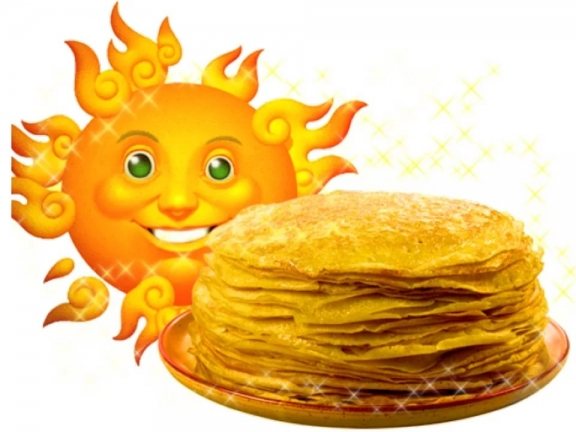
Pancakes symbolized the sun - they were just as round, yellow and hot.
The hostesses baked a variety of pancakes: with butter and sour cream, honey and jam, with caviar and mushrooms, with sturgeon and stellate sturgeon - for every taste. Wheat or buckwheat flour was used. The most delicious pancakes are freshly baked, piping hot.
A variety of pancakes were baked for Maslenitsa - with butter, sour cream, jam, caviar, etc.
Interestingly, the pancakes baked at different lengths of Maslenitsa had their own names:
- on Monday - pancakes;
- on Tuesday - pancakes;
- on Wednesday - pancakes;
- on Thursday - pancakes;
- on Friday - blinks;
- on Saturday - pancakes;
- on Sunday - royal pancakes.
Rich people started baking pancakes on Monday, while poorer people started baking pancakes on Thursday or Friday. They ate this food from morning to evening, occasionally alternating with other dishes. On the street, pancakes could be purchased literally on every corner; they were served in taverns and restaurants. We washed down the Maslenitsa symbol with hot tea and milk. Sbiten, a Russian drink made from water and honey with spices, was also popular.
Of course, in kindergarten no one will allow the children to eat pancakes every day during Maslenitsa week. But so that preschoolers can become more deeply imbued with national traditions, the teacher can choose a day and ask their parents to bake and bring pancakes. As an option, you can conduct an applique class - cut out a pancake from paper and decorate it with a fantasy ornament (in the middle group you can distribute ready-made blanks in the form of circles).
To maintain the festive mood, on one of the days of Maslenitsa you can treat preschoolers with pancakes that their parents will bake
The role of the Maslenitsa doll in the holiday
Another symbol of Maslenitsa is a large stuffed doll, which was solemnly burned on Sunday.
This was the climax of the holiday (as it is now) and symbolized the fact that winter had been defeated, was leaving, and spring was coming. Traditionally, funeral food was thrown into the fire - pancakes, flatbreads, eggs.
The burning of the Maslenitsa effigy was the culmination of folk festivities before and now
The doll was made of straw - human height or even larger, dressed in colored rags, a scarf was tied on its head, and bast shoes were put on its feet. She was depicted as a woman or an old woman (her prototype is the ancient Slavic goddess of winter and death Morena). The scarecrow had been installed on a pole and carried through the streets since Thursday: it was a whole Maslenitsa train with many horses, mummers galloping nearby with jokes and jokes.
They've been carrying the Maslenitsa stuffed animal through the streets since Thursday - walking around
At the same time, in each house the owners made a small Maslenitsa doll. It, in turn, was not burned, but was kept for a whole year as a talisman that wards off evil spirits and other misfortunes. The doll was placed in front of the entrance to the hut or in the red corner (the main corner of the Slavic house, located diagonally from the stove). When the next Maslenitsa came, the doll was burned on a ritual fire or floated down the river.
All actions during the making of the doll were filled with meaning. So, people tried not to use needles and scissors; the fabric had to be torn rather than cut. Maslenitsa’s face remained white: this way she became inaccessible to the infusion of evil forces. The materials for making the amulet were straw and pumpkin, but there had to be a tree, which personified the violent power of nature. People hung ribbons on the doll’s hands while making wishes.
In kindergarten, children can also make such amulets dolls for themselves (of course, the children will not burn them, but will take them home). Preschoolers will surely enjoy this kind of creativity; they will be imbued with the holiday atmosphere. Depending on the age of the students, the teacher can offer them crafts of different complexity from different materials.

During a fine arts lesson, preschoolers will happily make themselves amulets dolls from various papers, fabrics and other materials.
National traditions must be supported, so the child must be introduced to the Maslenitsa holiday already in preschool age. The story should be constructed emotionally and figuratively, without overloading the kids with unnecessary details or detailed religious explanations. It is better to show more bright pictures, drawings, works of famous artists, bring interesting facts, apt proverbs and sayings.
Songs for Maslenitsa
Happy Maslenitsa week. And it’s rich not only in games, but also in treats. Many songs are written about Maslenitsa, they lift your spirits and remind you of spring...
Oh, pancakes, pancakes, pancakes
(Russian folk song)
We haven’t eaten pancakes for a long time, We wanted pancakes,
Oh, pancakes, pancakes, pancakes, you are my pancakes. Oh, pancakes, pancakes, pancakes, you are my pancakes.
Our elder sister is a master at baking pancakes.
Oh, pancakes, pancakes, pancakes, you are my pancakes. Oh, pancakes, pancakes, pancakes, you are my pancakes.
She baked some food, there are probably five hundred.
Oh, pancakes, pancakes, pancakes, you are my pancakes. Oh, pancakes, pancakes, pancakes, you are my pancakes.
She puts it on the tray and carries it to the table herself.
Oh, pancakes, pancakes, pancakes, you are my pancakes. Oh, pancakes, pancakes, pancakes, you are my pancakes.
Guests, be healthy, my pancakes are ready.
Oh, pancakes, pancakes, pancakes, you are my pancakes. Oh, pancakes, pancakes, pancakes, you are my pancakes.
Maslenitsa
Music by: Trubachev
We greet Spring with crispy pancakes, we burn the effigy of Winter, we sing in a round dance.
Hello, dear Spring, We are neighbors with you. Hello, Red Spring, We greet you! Hello, Red Spring, We welcome you!
We will glorify Spring with fragrant pancakes. Everything in nature comes to life, the cunning sun blinks.
I'll warm you up more - A stream will run down the mountain. I will rise higher, Hello, Red Spring! I will rise higher, Hello, Red Spring!
Spring was called
Performed by "Wizards of the Courtyard".
He didn’t call for winter, the cold, he didn’t call, she came herself, Weaving her laces, sweeping them, chalking them. And we look from the window, And we are waiting for spring and the sun.
They called for spring, waited for summer, The river froze, houses under the snow. They called for spring, they waited for summer, It’s on the threshold, leave us, winter.
Winter, winter. Winter.
Let's go to round dances, we will call for spring, Drops are singing outside the window, Hello, sunny April. And we are waiting for spring, the magician, And we are building a staircase to heaven.
They called for spring, waited for summer, The river froze, houses under the snow. They called for spring, they waited for summer, It’s on the threshold, leave us, winter.
Winter, winter. Winter.
They called for spring, waited for summer, The river froze, houses under the snow. They called for spring, they waited for summer, It’s on the threshold, leave us, winter.
"The pancakes are good"
Author of poetry and music: Pavel Ermolaev Performed by: ensemble “Lel”
My girlfriend and I were invited to a fun holiday. We took part in quizzes and crossword puzzles. And when we got hungry, what did we see? How did your favorite pancakes appear on sale?
Chorus:
Pancakes, pancakes, good pancakes Pancakes, pancakes, nice pancakes Pancakes, pancakes, rosy pancakes With butter, honey and strawberries, and even with bananas.
I remembered this day with my girlfriend. Time flew by quickly, we were not bored. And we really liked everything about this holiday. Because they sold pancakes and butter.
Chorus.
We led round dances, played streams, accordionists played merrily for the people, everyone looked at the tables and clapped their hands, and when they finished playing, they devoured all the pancakes.
Chorus.
